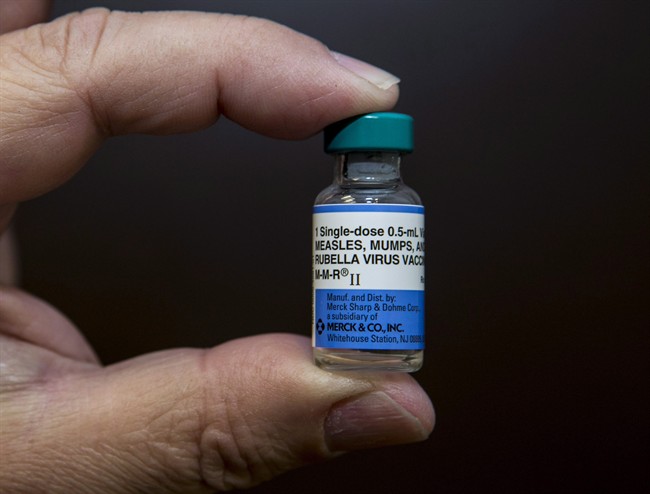NEW YORK – German measles is officially gone from North and South America, the first region to rid itself of the disease, health officials announced Wednesday.

Vaccines against German measles were first licensed in 1969, and were included in mass vaccination campaigns. It is now part of childhood shots.
World Health Organization officials said it has been more than five years since there’s been a German measles case that originated in the Americas. Now, the only cases in the region are imported from other parts of the world.
That’s enough time to certify German measles as the third infectious disease to be eliminated from the Americas, they said. Smallpox was eliminated in 1971 and polio in 1994.
READ MORE: Why is measles so contagious? 5 things you need to know
This “is a historic achievement for the Americas,” said Dr. Carissa Etienne, director of the Pan American Health Organization, which is part of the WHO.
German measles — also known as rubella — is a viral disease spread through coughing or sneezing. It’s generally a mild illness, involving a three-day rash and low-grade fever.
But when pregnant women get it, the illness can cause birth defects. A U.S. epidemic in the mid-1960s caused thousands of infant deaths and thousands of other babies to be born with birth defects.
READ MORE: Anti-vaccination movement means preventable diseases making a comeback
By 2004, German measles had been eliminated in the United States and it fell away in other countries as well, thanks to vaccination campaigns targeting both measles and German measles. The last German measles case originating in the Americas was reported in 2009 in Argentina.
Measles has been harder to eliminate because that disease spreads more easily and the German measles vaccine is more effective, said Dr. Susan Reef, a Centers for Disease Control and Prevention official.
___
Online:
PAHO site: http://www.paho.org
- Bird flu risk to humans an ‘enormous concern,’ WHO says. Here’s what to know
- ‘She gets to be 10’: Ontario child’s heart donated to girl the same age
- Shoppers faces proposed class action over claims company is ‘abusive’ to pharmacists
- Most Canadian youth visit dentists, but lack of insurance a barrier



Comments